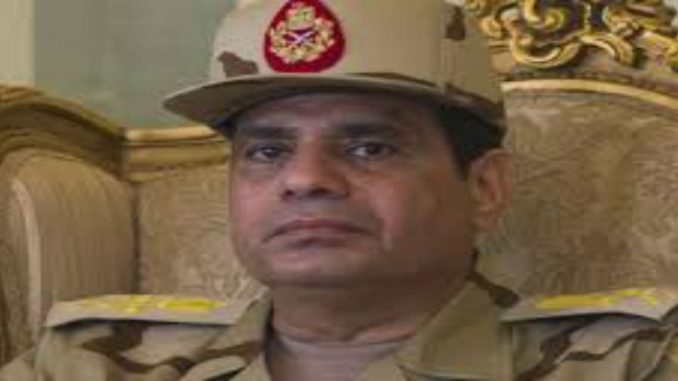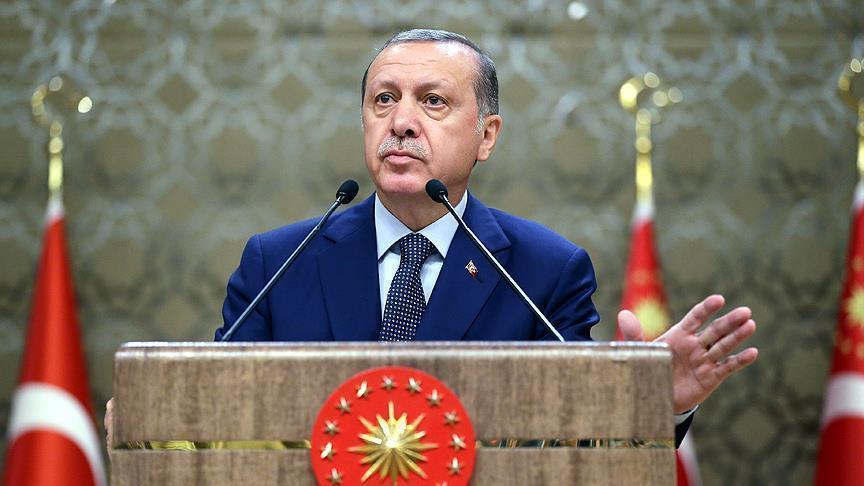
A campaign has been launched by activists in the United States to highlight the unprecedented human rights violations in Egypt in the run-up to Abdel Fattah al-Sisi’s White House meeting next week.
This week, the White House announced that al-Sisi will make an official visit to US President Donald Trump on April 3 to “discuss a range of bilateral and regional issues”.
The “Freedom First” campaign run by US-Egyptian former political prisoner, Mohamed Soltan, was launched after activists put up thousands of anti-Sisi regime posters in Washington DC.
The hashtag #FreedomFirst has gained attraction on Twitter shortly after it was introduced on Thursday with social media activists calling attention to individual cases of political prisoners under the Sisi regime.
Soltan said,”This campaign is an effort to harness that same energy and build on it to do the same for others who remain in the grips of injustice.”
A press statement said, “President Trump is scheduled to meet with Sisi, who Trump has called a ‘fantastic guy’ with whom he has ‘good chemistry’.”
It added,”Sisi has also overseen horrific human rights abuses, including the massacre of more than 1,000 activists in a single day, and the jailing of more than 40,000 journalists and activists without charge or trial.”
The campaign aims to shed the light and raise awareness about tens of thousands of prisoners in Egypt and the at least seven US nationals unjustly imprisoned on politicized charges.
One of them is the activist Aya Hegazy, an Egyptian-US dual citizen who worked with homeless children.
In May 2014, the Egyptian security forces raided her charity and arrested her and the staff at the Belady Foundation for Street Children.
Since then, Hegazy has been imprisoned on charges of exploiting minors and encouraging them to join political protests led by the banned Muslim Brotherhood.
Soltan, whose father is a leading member in the Muslin Brotherhood, was arrested in August 2013 and sentenced to life in prison for allegedly attempting to “destabilize” the country.
In June 2015, he was deported to the US after going on a 489-day hunger strike, causing relatives to fear for his life. His father, Salah was sentenced to death in the same trial as his son and remains imprisoned in Egypt.
Soltan said,”I never lose sight of the immense effort it took on the part of thousands of people, many of whom had never met me, to save my life.”
In the beginning, Soltan planned to kick off the campaign with ad spaces on the Washington DC Metro, however, the transport network rejected the ads, arguing they violated its ban on “issues-oriented advertising.”
Since the military coup in 2013 led by Abdel Fattah al-Sisi against Egypt’s first democratically elected president Mohamed Morsi, the iron curtain has fallen on human rights in Egypt .
The Egyptian military regime has engaged in one of the widest arrest campaigns in the country’s modern history, targeting a broad spectrum of political opponents.
According to Human Rights Watch and local rights groups, “Between June 2013 and May 2014, the Egyptian authorities arrested or charged at least 41,000 people, and 26,000 more may have been arrested since the beginning of 2015.”
Enforced disappearance, arbitrary detention, military trials, and human rights violations at Egypt’s prisons have marked al Sisi’s reign.
Aa for enforced disappearance, Amnesty International released a report in July 2016, saying that hundreds of Egyptians have been forcibly disappeared and tortured in a “sinister” campaign to wipe out peaceful dissent in the most populous country in the Arab world.
Philip Luther, Amnesty’s Middle East and North Africa director said, “Enforced disappearance has become a key instrument of state policy in Egypt. Anyone who dares to speak out is at risk, with counter-terrorism being used as an excuse to abduct, interrogate and torture people who challenge the authorities.”
In the same context, the Egyptian Coordination for Rights and Freedoms (ECRF), a non-governmental rights group, released a report on enforced disappearance covering the period from the beginning of January 2016 to the end of June. The Egyptian rights group said that it documented 1000 enforced disappearances cases in the first half of 2016, at a rate of 5 cases per day.
Moreover, the number of arbitrary detention has escalated since the military coup. The Egyptian Coordination for Rights and Freedoms (ECRF)has documented 26,207 detainment incidents from the Egyptian security institutions in 18 months.
In addition, Amnesty International stated in its annual report of 2015-2016 that “The criminal justice system continued to serve as an instrument of state repression, with courts convicting hundreds of defendants on charges such as “terrorism”, “unauthorized protesting”, engaging in political violence and belonging to banned groups, after grossly unfair mass trials in which prosecutors did not establish the individual criminal responsibility of the defendants.”
It added that “At least 3,000 civilians stood trial before unfair military courts on “terrorism” and other charges alleging political violence. Many, including leaders of the Muslim Brotherhood, were tried in mass trials. Military trials of civilians are fundamentally unfair.”
Furthermore, military trials have dramatically expanded in Egypt in the recent years based on October 2014 decree by Abdel Fattah al-Sisi that allowed the military to assist police forces in the protection of public facilities.
The ruling places the frozen assets under government custodianship, which means that the organizations and individuals can no longer make independent decisions about the seized money.



